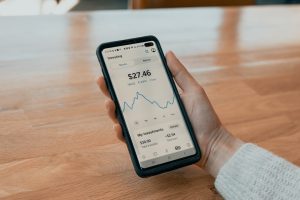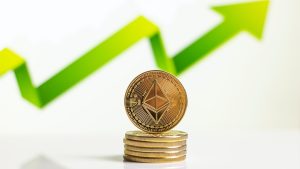Forex, or foreign exchange, is a global market where different currencies are traded. This market is the largest financial market in the world, with an average daily trading volume of $5.3 trillion. The amount of money that goes through forex every day is staggering, and it plays a crucial role in the global economy.
The forex market is open 24 hours a day, five days a week. It is a decentralized market, which means that there is no central exchange or clearinghouse. Instead, trading is conducted electronically over-the-counter (OTC) through a network of banks, brokers, and other financial institutions. This allows traders to buy and sell currencies around the clock, regardless of their location.
The most traded currencies in the forex market are the US dollar (USD), the euro (EUR), the Japanese yen (JPY), the British pound (GBP), the Swiss franc (CHF), the Canadian dollar (CAD), the Australian dollar (AUD), and the New Zealand dollar (NZD). These currencies are traded in pairs, such as USD/EUR or GBP/JPY.
The amount of money that goes through forex every day is determined by the trading volume of these currency pairs. The trading volume is the total amount of currency that is bought and sold in a given period. It is measured in lots, which represent a standard size of currency units. One lot of currency is typically 100,000 units.
The trading volume in the forex market varies depending on the time of day and the day of the week. The busiest trading hours are during the overlap of the Asian, European, and North American trading sessions. This is when traders from different parts of the world are actively buying and selling currencies.
According to the Bank for International Settlements (BIS), the average daily trading volume in the forex market was $5.3 trillion in April 2019. This represents a 30% increase from the previous BIS survey in 2016. The increase in trading volume is due to the growing number of traders and the increasing use of electronic trading platforms.
The majority of the trading volume in the forex market is generated by institutional investors, such as banks, hedge funds, and central banks. These investors trade large amounts of currencies to manage their foreign exchange reserves, to hedge their currency risk, or to speculate on the direction of currency movements.
Retail traders, or individual traders, also play a significant role in the forex market. They trade smaller amounts of currencies through online brokers or trading platforms. Retail traders account for about 5% of the total trading volume in the forex market.
The amount of money that goes through forex every day has a significant impact on the global economy. The forex market is a vital component of international trade and finance. It allows businesses to convert one currency to another, which is essential for cross-border transactions. It also helps to determine the value of currencies, which affects the competitiveness of countries in the global market.
In conclusion, the forex market is the largest financial market in the world, with an average daily trading volume of $5.3 trillion. The amount of money that goes through forex every day is determined by the trading volume of different currency pairs. The majority of the trading volume is generated by institutional investors, while retail traders also play a significant role. The forex market is a crucial component of international trade and finance, and its impact on the global economy cannot be overstated.





